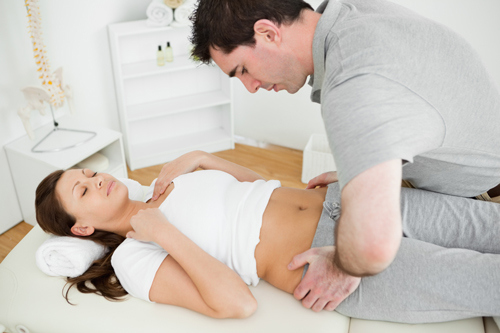
Hip pain can have many causes. One of the most common, especially in the over-50, is osteoarthritis. Osteoarthritis occurs when cartilage and, sometimes, underlying bone degenerate within a joint; on occasion bone grows where it should not be, causing painful spurs. Of the more than 100 forms of arthritis, it is the kind that occurs most frequently. The symptoms of hip osteoarthritis can sometimes be successfully addressed with physical therapy, and we would be happy to work with your physician to design a routine in the attempt to reduce pain. Strengthening the muscles around the hip – there are almost 20 – can help, as can increasing flexibility and range of motion, all of which may help lessen inflammation and the discomfort it can cause.
Anti-inflammatory drugs taken orally, as well as cortisone injections directed into the hip (guided by ultrasound), are additional pain-relief options for many people, too. And the use of a cane or walker can help as well. However, in the long term, sometimes a total hip replacement is the best solution. This surgery has been refined over the years so that, generally, it is less invasive than it once was. Recovery, though, is still vigorous – for starters, you are expected to try walking the day of or the day after surgery – and includes weeks of strengthening and flexibility exercises so you and your hip mesh well together to ultimately give you pain-free mobility. We will help you with postoperative physical therapy to achieve that goal. If your problem is not osteoarthritis, other possible causes of hip pain include tendonitis, bursitis or synovitis (inflammation, respectively, of a tendon, bursa, or the joint’s synovial lining), or tears in hip muscles or the labra (elastic tissue that rims the socket of your hip joint). Any of these problems can be addressed with physical therapy to start, but sometimes surgery is required to eliminate the problem. Fortunately, arthroscopic options can make any of the hip surgeries these conditions require much more easily borne than they were a decade or two ago.
